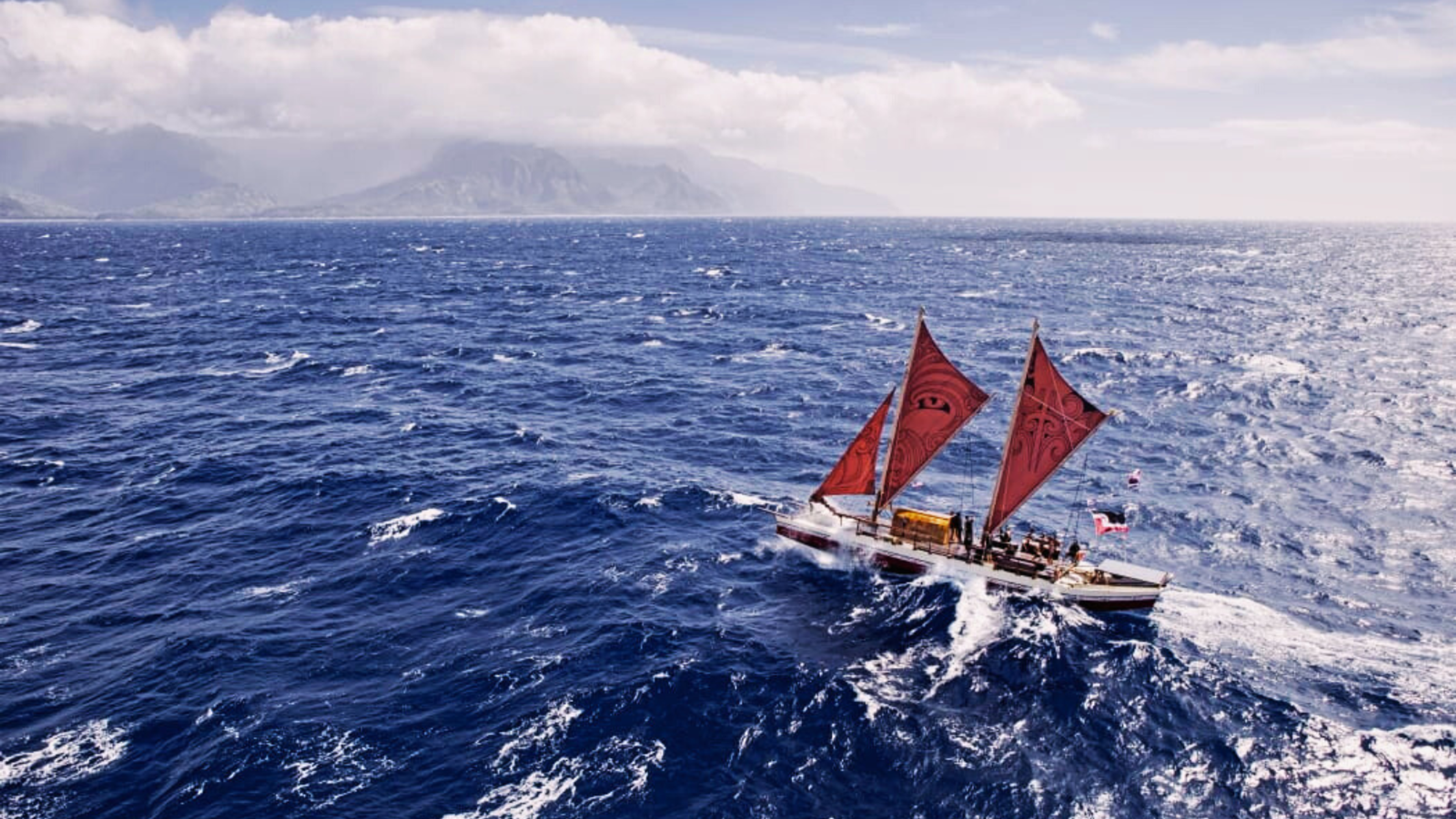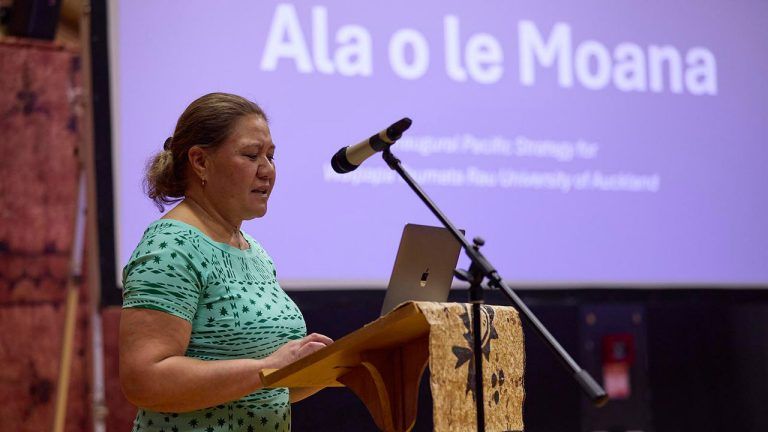

Chief executive and secretary for the Ministry for Pacific Peoples Geraldine Clifford-Lidstone, Pro Vice-Chancellor Pacific Prof Jemaima Tiatia-Siau and Vice-Chancellor Prof Dawn Freshwater at the Fale Pasifika.
Photo/Ralph Brown via University of Auckland
Auckland University charts new course with strategy for Pasifika
The launch of Ala o le Moana celebrates the rich legacy and future aspirations for Pasifika students.



New Pacific toolkit brings ancestral knowledge into Aotearoa classrooms





New Pacific toolkit brings ancestral knowledge into Aotearoa classrooms


The University of Auckland recently celebrated a major milestone with the launch of its inaugural Pacific strategy, Ala o le Moana.
The initiative aims to boost academic outcomes through research, leadership, teaching, entrepreneurship and community service.
Ala o le Moana, which translates to ‘pathways of the ocean’, pays tribute to the Pacific people’s rich history of navigation, exploration, and community.
Guests and dignitaries from across the country, including Geraldine Clifford-Lidstone, the Chief Executive and Secretary for the Ministry for Pacific Peoples, were present for the launch.
Professor Jemaima Tiatia-Siau, the university’s Pro Vice-Chancellor, expressed her gratitude to everyone who contributed to the strategy.
“Without your voice, leadership, knowledge and efforts, Ala o le Moana would not have come into being,” she says in a statement. “This re-emphasises our University’s commitment, in that we all desire a common goal and that is to continue building, nurturing and sustaining a thriving environment for our Pacific communities.”
Developed through extensive talanoa with church leaders, elders, youth, academics, and business figures, Tiatia-Siau says the strategy reflects the aspirations and lived experiences of Pasifika in Aotearoa.
The strategy builds on a legacy of Pacific excellence that began in 1936 when Olive Malienafau Nelson became the university’s first Pacific graduate and the first Pacific woman to earn a degree. Her pioneering story lives on through a dedicated scholarship launched in 2022 to support future Pacific leaders in law.
Dawn Freshwater, Vice-Chancellor Professor, says the launch of Ala o le Moana is a landmark moment. “Many hands and hearts have shaped this important document. We are absolutely thrilled that, after 142 years, Ala o le Moana has been realised.”
The strategy aligns with initiatives from other tertiary institutions, such as the University of Otago, which introduced its Pacific Strategic Framework in 2013.

Jemaima Tiatia-Siau speaks at the launch of University of Auckland's Pacific strategy. Photo/University of Auckland
A positive intention for the future
As of 2023, Pacific students make up 10 per cent of the university’s population, totalling 4000 Pacific learners and 400 staff members.
Ala o le Moana outlines five key priorities: Pacific excellence in research, innovation, and entrepreneurship, teaching and learning, service, and leadership.
The Pacific strategy complements Kawea Ake, the university’s Māori strategy, and Toitū Waipapa, its Māori framework, reinforcing a shared commitment to tino rangatiratanga (self-determination), equity and transformation.
Tiatia-Siau says the strategy aligns with the university’s overarching vision and strategic plan.
Watch Professor Jemaima Tiatia-Siau's full interview on Pacific Mornings in April 2025 below.
She says it empowers Pacific success and positions Pacific people in solidarity with tangata whenua.
“We have been fortunate to have the guidance and support from tangata whenua and mana whenua, under the leadership of Pro Vice-Chancellor Māori Professor Te Kawehau Hoskins and her office, as well as the taonga of insights from our Māori whānaunga from across our institution,” she says.
Sili-Mireta Ropati, Acting Deputy Pro Vice-Chancellor Pacific, describes the launch as a “proud moment” for the institution and Pacific communities.
She adds that it is about amplifying Pacific voices and ensuring our tauira (students) are equipped to lead with confidence and cultural pride.
Tiatia-Siau says Ala o le Moana is more than a document; it is a collective commitment to Pacific futures.
“It’s a directed flightpath for transformation. It’s about creating a future where Pacific learners and leaders can thrive, with an approach that recognises and celebrates their identities, values and languages, while also honouring their invaluable and unique contributions and excellence.”
The University of Auckland faced criticism last year for a designated study area for Pacific and Māori students, a practice that has been in place for years.
New Zealand First leader and Foreign Minister VaovasamanaiaWinson Peters condemned the action as a ‘moral cultural crusade’. Prime Minister Christopher Luxon told the New Zealand Herald there is “no place for discrimination or segregation in New Zealand”.
This article has been updated to correct the year that the University of Otago launched its Pacific strategy, to 2013.